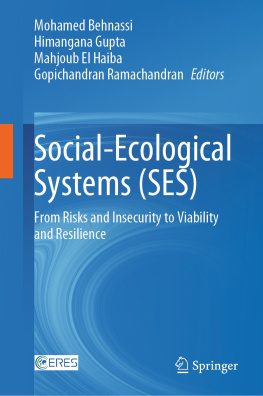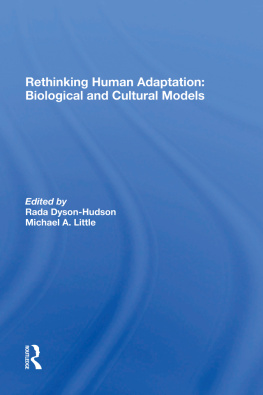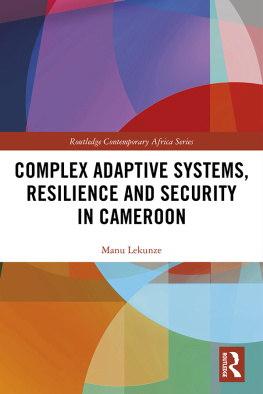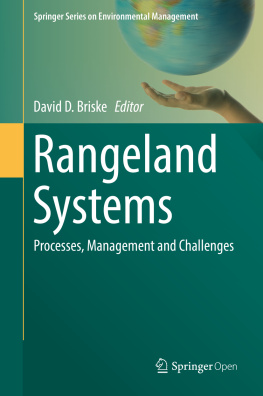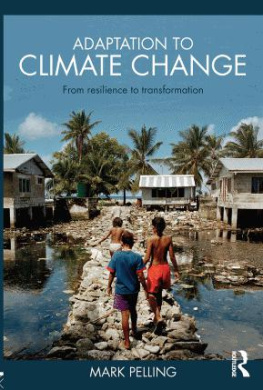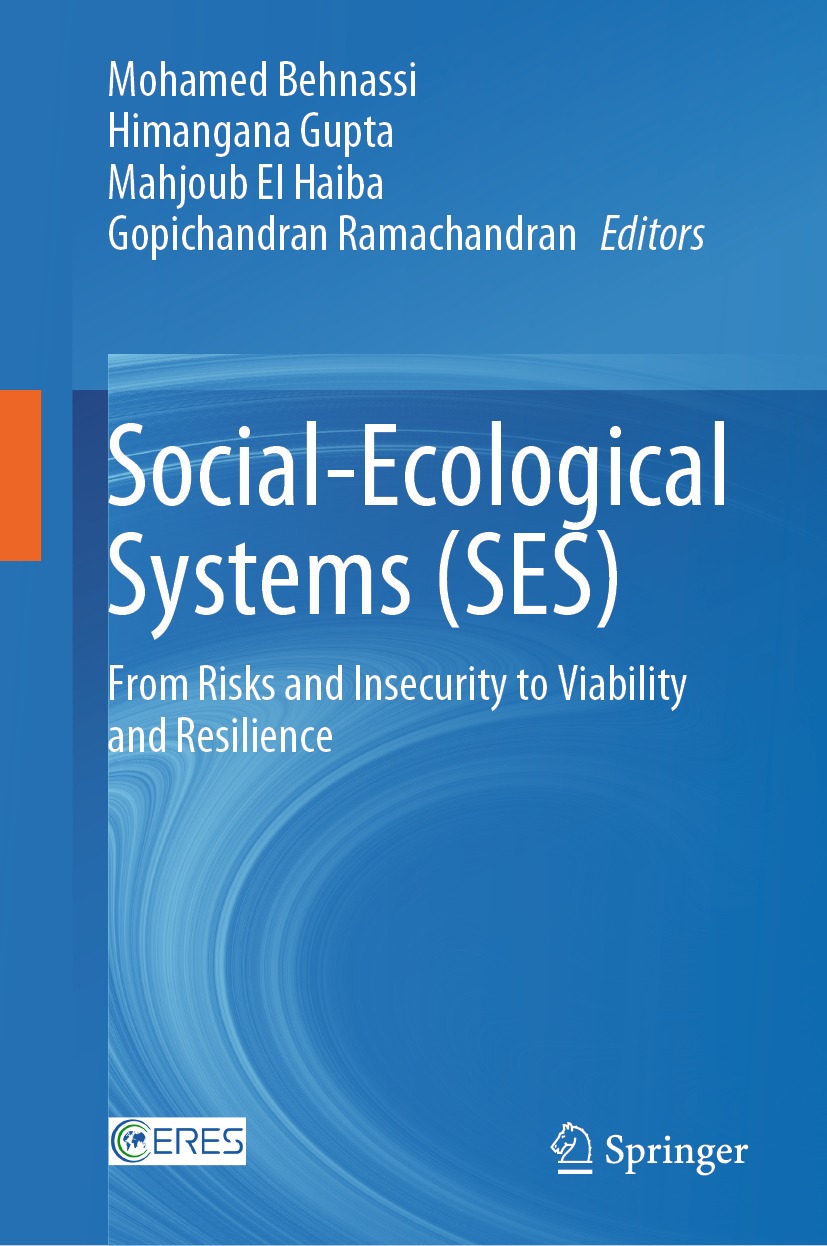Editors
Mohamed Behnassi
College of Law, Economics and Social Science of Agadir, Center for Environment, Human Security & Governance (CERES), Universit Ibn Zohr, Agadir, Morocco
Himangana Gupta
JSPS-UNU Postdoctoral Fellow, University of Tokyo & Institute for the Advanced Study of Sustainability, United Nations University, Tokyo, Tokyo, Japan
Mahjoub El Haiba
College of Law, Economics and Social Science of Casablanca, University of Hassan II Casablanca, Rabat, Morocco
Gopichandran Ramachandran
NTPC School of Business, NOIDA, India
ISBN 978-3-030-76246-9 e-ISBN 978-3-030-76247-6
https://doi.org/10.1007/978-3-030-76247-6
The Editor(s) (if applicable) and The Author(s), under exclusive license to Springer Nature Switzerland AG 2021
This work is subject to copyright. All rights are solely and exclusively licensed by the Publisher, whether the whole or part of the material is concerned, specifically the rights of translation, reprinting, reuse of illustrations, recitation, broadcasting, reproduction on microfilms or in any other physical way, and transmission or information storage and retrieval, electronic adaptation, computer software, or by similar or dissimilar methodology now known or hereafter developed.
The use of general descriptive names, registered names, trademarks, service marks, etc. in this publication does not imply, even in the absence of a specific statement, that such names are exempt from the relevant protective laws and regulations and therefore free for general use.
The publisher, the authors and the editors are safe to assume that the advice and information in this book are believed to be true and accurate at the date of publication. Neither the publisher nor the authors or the editors give a warranty, expressed or implied, with respect to the material contained herein or for any errors or omissions that may have been made. The publisher remains neutral with regard to jurisdictional claims in published maps and institutional affiliations.
This Springer imprint is published by the registered company Springer Nature Switzerland AG
The registered company address is: Gewerbestrasse 11, 6330 Cham, Switzerland
Preface
One of the most striking dynamics of the current era is the interaction of anthropogenic processes with ecological systems at large scales with increasing intensity, rates, and uncertain consequences. This can probably be correlated with the propensity of human societies to build many forms of disconnected settings to meet a myriad of needs. Most of such needs are not usually fundamental to the survival and positive evolution of human species, yet met by crossing many ecological thresholds, sometimes irreversibly. According to a research published in the journal science in 2015, the pursuit of global economy has already transgressed four planetary boundaries manifest through climate change, deforestation, species extinction, and the runoff of phosphorus and nitrogen into regional watersheds and oceans. These perturbations create the context for an increasingly dangerous, unpredictable, and fragile natural environment that cannot serve the just developmental aspirations of a flourishing human society. Scientists refer to the current geologic era of human-induced environmental change as the Anthropocene.
Increasingly sophisticated analyses of socio-economic and Earth system trends confirm that affluent countries worldwide, representing the Global North, are the primary drivers of global change, much as they account for 70% of global economic activity for over seven decades now. Ironically such nations host only 18% of the planets population. While they reap material benefits of burgeoning economic activities, the environmental consequences are borne disproportionately by the planets most vulnerable human beings, constituting the Global South. The latter relies on such natural resource-centered sectors as agriculture, fishing, forestry, and tourism for its survival and human security. Importantly, it lacks appropriate capacities to mitigate the damage induced by environmental and other global-scale challenges posed by climate change. These, in turn, exacerbate poverty and inequalities. According to a recent report issued by Oxfam, 20% of the worlds population currently owns approximately 95% of the planet wealth. If current trends continue, the richest 1% of the worlds population will control a larger share of the worlds wealth in the near future than the remaining 99%. Nearly, 750 million people are unable to access to clean drinking water, and 2.5 billion people lack access to sanitation. Approximately, 820 million people suffer from chronic undernourishment because they lack the resources to grow or purchase sufficient food to satisfy their dietary energy needs. Another 2.6 billion people lack modern energy facilities for cooking, heating, lighting, transportation, or basic mechanical power. The fossil fuel-driven industrial development model, established by the Global North and currently pursued by many emerging economies, has altered the trajectory of the resilience of the Earth system.
The failure to perceive human societies as integral parts of the Earth system (geosphere, atmosphere, biosphere, and hydrosphere) and the tendency to predate resources accordingly lead to a wide variety of mutually reinforcing and unprecedented complex risks. They tend to destabilize the security, viability, and resilience of social and ecological systems at all levels. The current Coronavirus crisis significantly illustrates and exacerbates this failure. Existing regulatory and conceptual frameworks, including principles and practice of international environmental law and sustainability, are not impactful enough to reverse or reduce current trends of deterioration. One of the reasons behind such a failure is the North-South divide that manifests through persistent conflicts between affluent and poor countries. This grid-locks negotiations and accentuates challenges due to non-compliance, thus generating resistance, suspicion, and ill will. The Global North appears to have by and large prioritized the environmental concerns of the affluent, only from a liberal perspective. This attitude to disregard the common but differentiated responsibility tends to ignore environmental and social problems that overly burden the Southern poor further affecting their coping abilities. This is especially the case of indigenous people and small-island states.
Climate change is an excellent example of the North-South conflicts in international environmental law. The North has agreed to assume a leadership role that emphasizes its greater technical and financial resources, yet disavows responsibility for its historic contribution to climate change and other environmental problems.
Failure to tackle impacts of climate change tends to spiral consequences of biodiversity loss, man-made environmental disasters, and epidemics. This compound risks to social systems, including economic development and political integration with many implications for livelihoods, well-being, productivity, and even regional and domestic security. In the past, the humannature harmony fostered resilience of socio-ecological systems. Such a harmony enabled adaptation through nature-based solutions, conservation and sustainable use of bio-resources through traditional knowledge and practices. Presently, this harmony is being deeply disrupted due to large-scale shifting dynamics.

